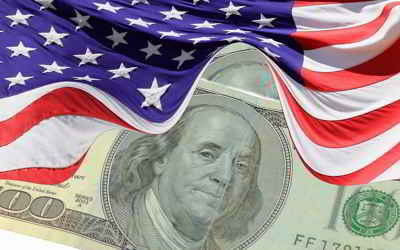Washington Economy
Agriculture and Industry in Washington
Washington economy is a set of human and social activities and institutions related to the production, distribution, exchange and consumption of agriculture and industry goods and services. The balance between Washington various economic sectors differs largely between various regions and other states in the US.Washington Agriculture and Industry
Washington's real gross state product in 2012 was estimated to be $325,165 which was $137,725 and 74% higher than the national state average, $187,440. Washington has the 14th highest GSP out of the 50 states.
Water is central to the economy of Washington, and although the state borders the Pacific Ocean, it is the Columbia River that has the greatest impact. From its earliest use by Native Americans as a travel route and a source of salmon in their diet to the more modern use of hydroelectric power generated by the Grand Coulee Dam, the Columbia River is crucial.
Along with the Columbia River, the Snake River and the Yakima River contribute to the irrigation system that is required for successful agriculture in the area. This irrigation enables Washington to support a successful food processing industry that includes fruit production, vineyards, and dairy farming. Washington leads the nation in the production of apples, sweet cherries and pears. The state is also a major producer of wheat, corn, onions, potatoes, apricots, grapes and other fruits. There are also abundant fishing resources including salmon, halibut, bottom fish, oysters, and crabs.
More than half the state's area is forested, so the lumber and wood-products industries have always been important to the state of Washington. Many of the state's cities, including Tacoma, Bellingham, and Seattle, began as sawmill centers, and lumber, pulp and paper are among their major products.
Other important industries in Washington include chemicals and primary metals, particularly aluminum. There are rich aluminum and magnesium ores found in the Okanogan Highlands, and the availability of water power has made Washington one of the nation's major producers of refined aluminum.
The 2003 total gross state product for Washington was $244 billion, placing it 11th in the nation. The per capita income was $33,332.
Washington Agriculture:
Seafood, dairy products, apples, cattle, wheat, potatoes, nursery stock.
For 2001, the total value of Washington's agricultural products was $5.4 billion, the 12th highest in the country. The total value of its crops was $3.2 billion, the 8th highest.
In 2002 Washington ranked first in the nation in production of raspberries (87.8%) of total US production), hops (74.4%), spearmint oil (also 74.4%), wrinkled seed peas (65.6%), apples (60.2%), Concord grapes (51.8%), sweet cherries (48%), pears (44.9%), lentils (41.9%), peppermint oil (35.2%), carrots for processing (34.5%), tart cherries (32.8%), Niagara grapes (32.4%) and sweet corn for processing (29.2%). Washington also ranked second in the nation in grapes (all varieties taken together), apricots, asparagus (over a third of the country's production) and green peas for processing; third in the nation for wheat, prunes and plums, summer dry onions, trout and butter; fourth in barley and peaches; and fifth in cranberries and strawberries.
Washington Industry:
Aerospace, software development, food processing, paper products, lumber and wood products, chemical products, tourism.
Significant business within the state include the design and manufacture of jet aircraft (Boeing), computer software development (Microsoft, Amazon.com,
Nintendo of America), electronics, biotechnology, aluminum production, lumber and wood products, mining, and tourism. The state has significant amounts
of hydroelectric power generation. Significant amounts of trade with Asia pass through the ports of the Puget Sound.

US economy is relies on private decision-making ("economic freedom")




